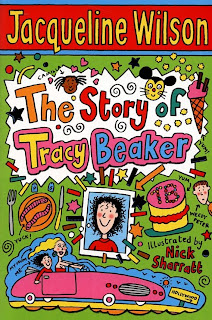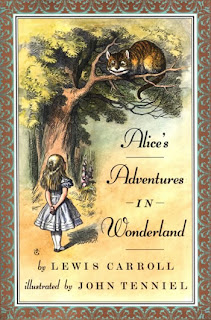A Prayer for Owen Meany was touching, entertaining, thought provoking, heart wrenching, disgusting, frustrating, enlightening, and an overall good read. Did I LOVE the book? No, not really. There were things about it that I almost hated, but I loved Owen Meany. The story is narrated by Owen Meany’s best childhood friend John. The thing about this book which frustrated me the most was that John—in present day, telling the story—was dreadfully annoying. The book basically came in 30—or so—page segments of great stories, separated by irritating rants about newspapers and the US sucking. I’m not defensive about the US or anything, but John’s incessant and repetitive whining just got really old. The good news is that the portions of the book where John is a whiny adult are typically very short—about 3-5 pages.
The target audience for this book is probably those who were in their late teens or 20s during the Vietnam War. Anyone can enjoy and appreciate the book, but I think it would have greater meaning and resonate more with people of that generation.
Favorite passages:
“JUST BECAUSE A BUNCH OF ATHEISTS ARE BETTER WRITERS THAN THE GUYS WHO WROTE THE BIBLE DOESN’T NECESSARILY MAKE THEM RIGHT!” he said crossly. “LOOK AT THOSE WEIRDO TV MIRACLE-WORKERS—THEY’RE TRYING TO GET PEOPLE TO BELIEVE IN MAGIC! BUT THE REAL MIRACLES AREN’T ANYTHING YOU CAN SEE—THEY’RE THINGS YOU HAVE TO BELIEVE WITHOUT SEEING. IF SOME PREACHER’S AN ASSHOLE, THAT’S NOT PROOF THAT GOD DOESN’T EXIST!” “Yes, but let’s not say ‘asshole’ in class, Owen,” Pastor Merrill said. And in our Scripture class, Owen said, “IT’S TRUE THAT THE DISCIPLES’ ARE STUPID—THEY NEVER UNDERSTAND WHAT JESUS MEANS, THEY’RE A BUNCH OF BUNGLERS, THEY DON’T BELIEVE IN GOD AS MUCH AS THEY WANT TO BELIEVE, AND THEY EVEN BETRAY JESUS. THE POINT IS, GOD DOESN’T LOVE US BECAUSE WE’RE SMART OR BECAUSE WE’RE GOOD. WE’RE STUPID AND WE’RE BAD AND GOD LOVES US ANYWAY—JESUS ALREADY TOLD THE DUMB-SHIT DISCIPLES WHAT WAS GOING TO HAPPEN.” Pg 309
“Why does she drink so much?” I asked Owen. “HESTER’S AHEAD OF HER TIME,” he said. “What’s that mean?” I asked him. “Do we have a generation of drunks to look forward to?” “WE HAVE A GENERATION OF PEOPLE WHO ARE ANGRY TO LOOK FORWARD TO,” Owen said. “AND MAYBE TWO GENERATIONS OF PEOPLE WHO DON’T GIVE A SHIT,” he added.” Pg 362
“what could Marilyn Monroe’s death ever have to do with me? “IT HAS TO DO WITH ALL OF US,” said Owen Meany, when I called him that night. “SHE WAS JUST LIKE OUR WHOLE COUNTRY—NOT QUITE YOUNG ANYMORE, BUT NOT OLD EITHER; A LITTLE BREATHLESS, VERY BEAUTIFUL, MAYBE A LITTLE STUPID, MAYBE A LOT SMARTER THAN SHE SEEMED. AND SHE WAS LOOKING FOR SOMETHING—I THINK SHE WANTED TO BE GOOD. LOOK AT THE MEN IN HER LIFE—JOE DIMAGGIO, ARTHUR MILLER, MAYBE THE KENNEDYS. LOOK AT HOW GOOD THEY SEEM! LOOK AT HOW DESIRABLE SHE WAS! THAT’S WHAT SHE WAS: SHE WAS DESIRABLE. SHE WAS FUNNY AND SEXY—AND SHE WAS VULNERABLE TOO. SHE WAS NEVER QUITE HAPPY, SHE WAS ALWAYS A LITTLE OVERWEIGHT. SHE WAS JUST LIKE OUR WHOLE COUNTRY.” Pg 430
“THE ONLY WAY YOU CAN GET AMERICANS TO NOTICE ANYTHING IT TO TAX THEM OR DRAFT THEM OR KILL THEM,” Owen said.” Pg 431
If this were a movie, I’d rate it: PG-13
Overall Grade: B+























